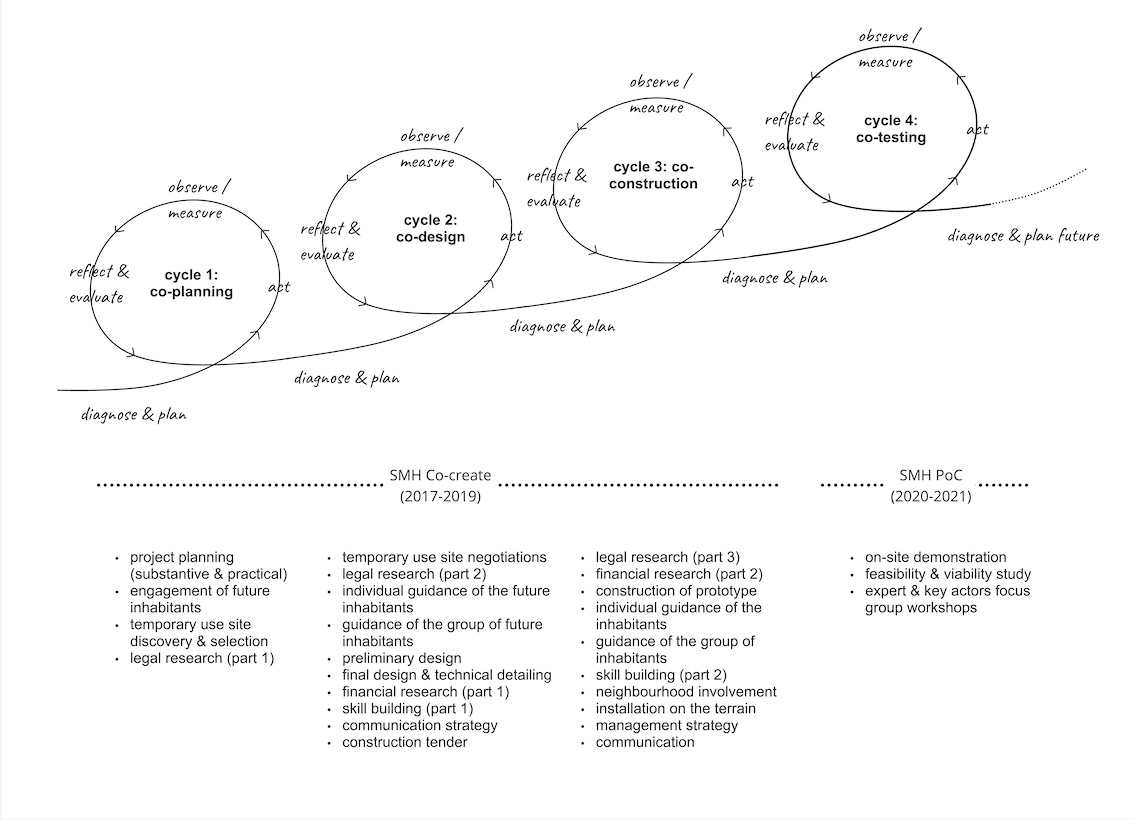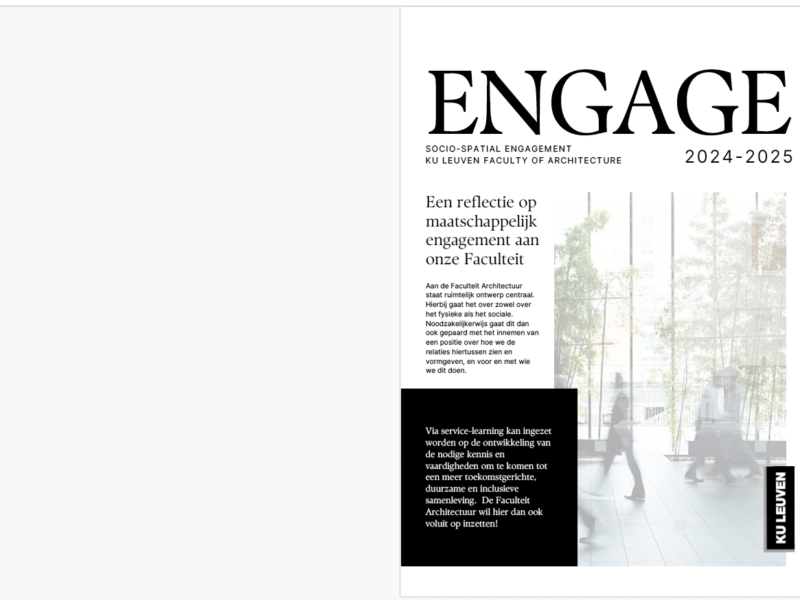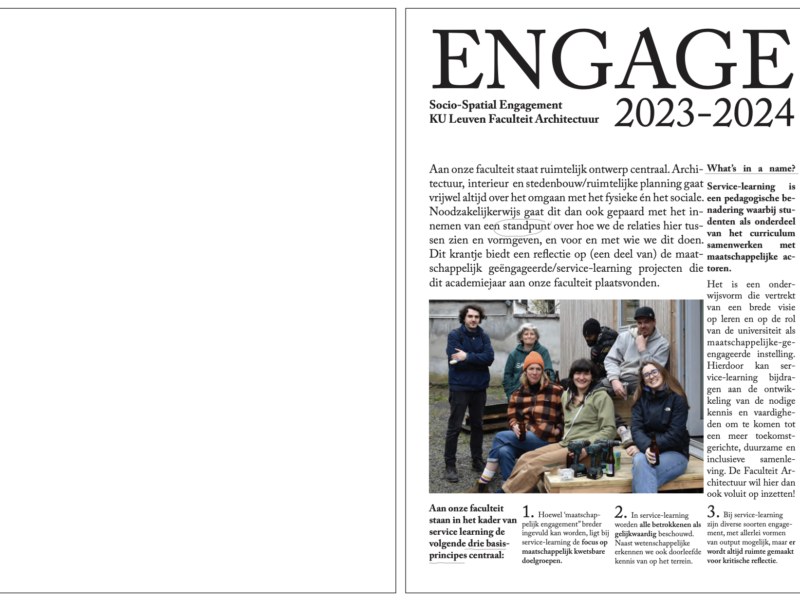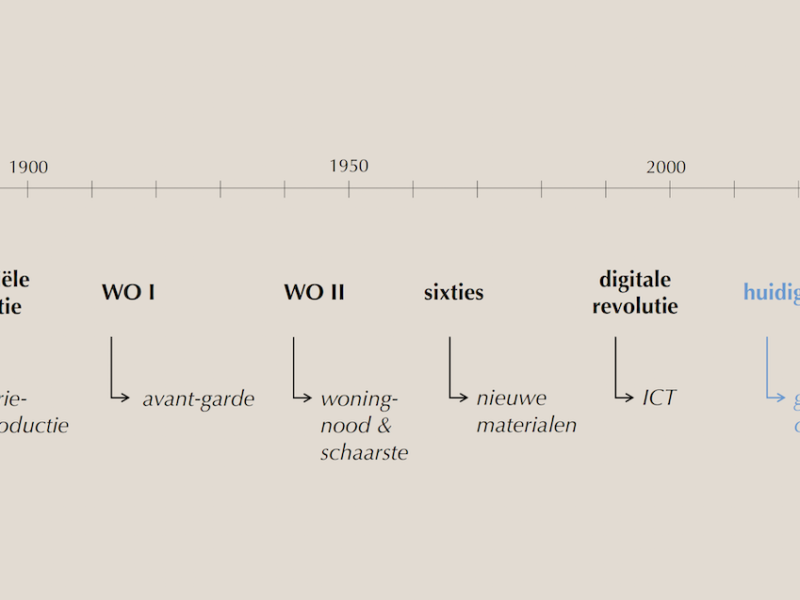Publication of two papers in Codesign (International Journal of CoCreation in Design and the Arts), issuing from a critical analysis of end-user empowerment in the Solidary Mobile Housing (SMH) project using Kesdi’s Direct Design Empowerment Framework (dDEF).
In the first paper paper (first author: Hatice Kesdi), we are using dDEF to analyse the SMH project’s rationale through Theory of Change. Besides revealing that the SMH proposal can be considered promising in terms of end-user empowerment, the critical discussion reveals a lack of clarity in defining empowerment in architectural design. It is argued that an explicit and systematic evaluation is needed for identification and more radical envisioning of empowerment, facilitating power sharing and mutual learning between all actors. Finally, as a secondary outcome, the study presents observations on the efficacy of dDEF in evaluating empowerment. The study concludes by revisiting the research questions, discussing its limitations, and suggesting for future research directions.
In the second paper (first author: Aurelie De Smet) we are using dDEF to anlyse the project’s development process through Theory of Action. Our detailed unravelling of the inputs, strategies, activities, factors, outcomes, and outputs reveals how consideration of all participants’ needs and wishes, collaboration with experienced social organisations, the use of boundary objects, and extensive and open communication not only contributed to empowering the homeless people involved but also led to mutual learning for all the other parties involved. In general, this paper demonstrates how participation in the design process can enable signposting/prefiguration directly with end users and allow for Networked Critical Spatial Practices and how this, in turn, can contribute to architectural design empowerment.
Type of project:
journal paper
Co-authors:
Hatice Kesdi, Burak Pak
Publishing date:
2024, 2025
Publisher:
Taylor & Francis
Role:
(co-)author



